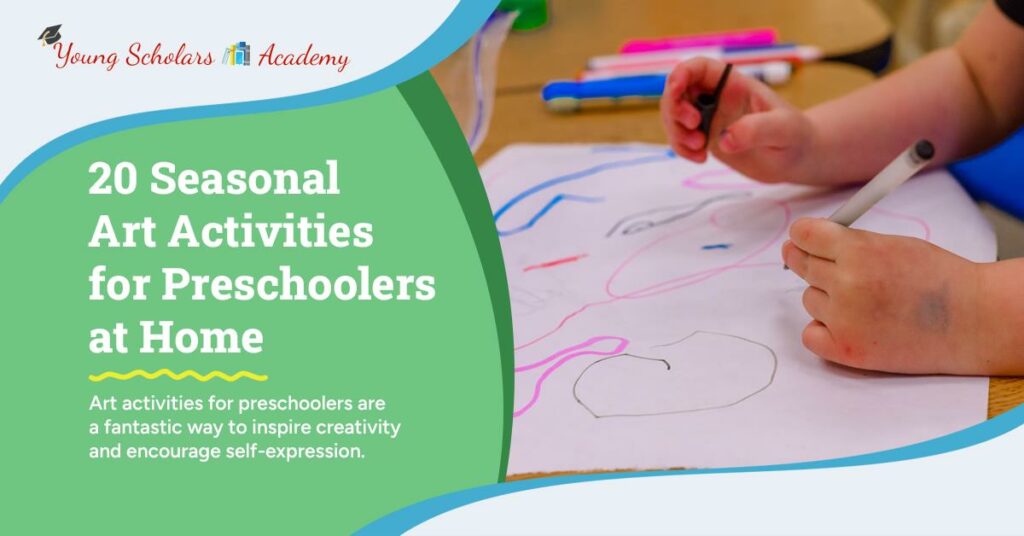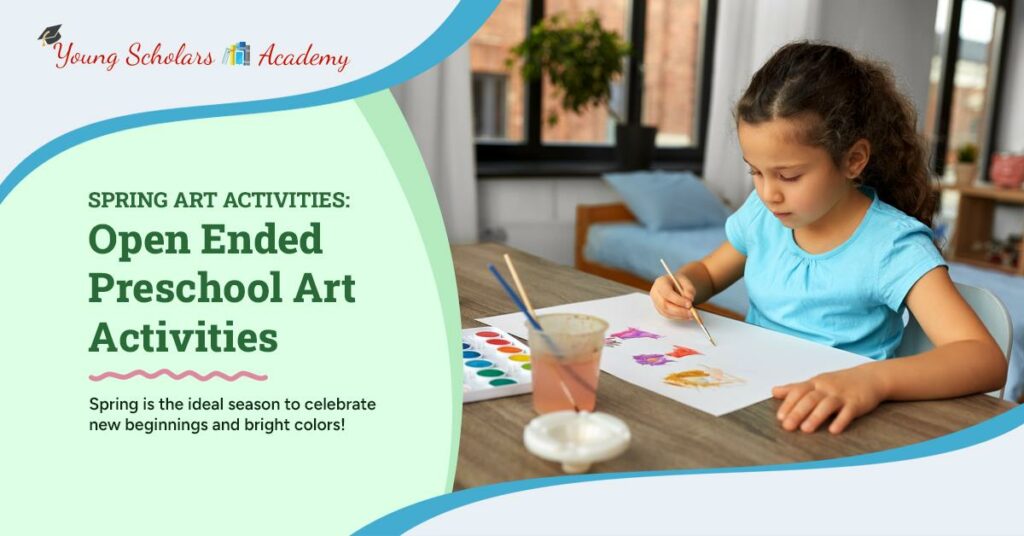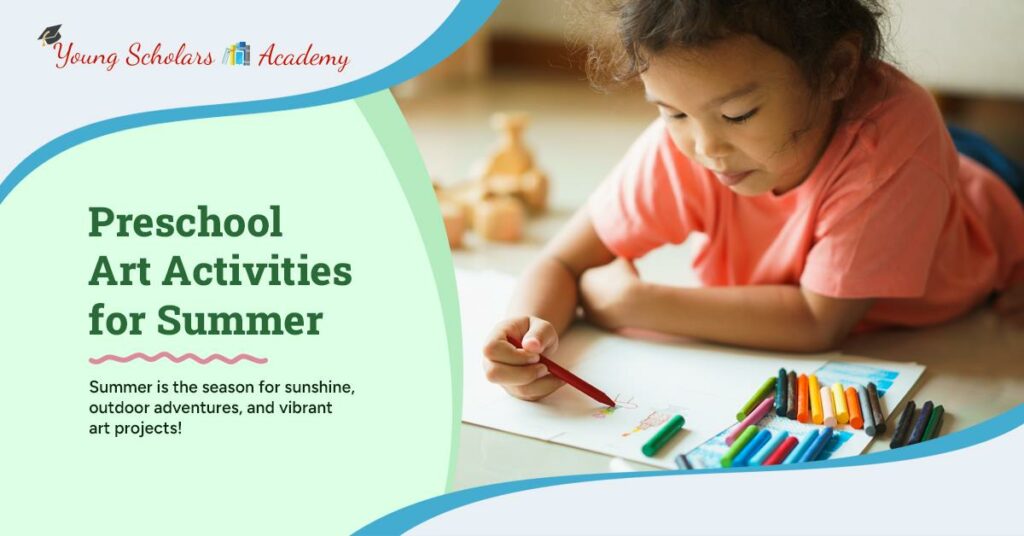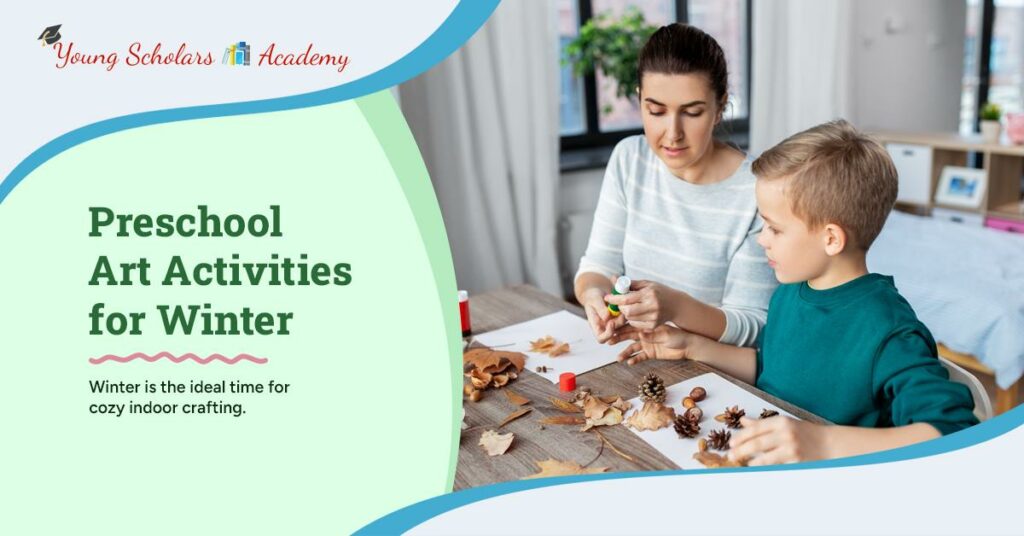Play-based learning is at the heart of early childhood education, allowing preschoolers to explore, imagine, and grow naturally and excitingly. By incorporating imaginative play, art, and interactive activities, play-based learning fosters a love for discovery while laying the pillars for academic success and personal confidence.
This approach encourages critical thinking and problem-solving and helps children build strong social connections in a fun, supportive environment. With a focus on individuality and developmental needs, play-based learning ensures that every child feels inspired to reach their fullest potential.
Learning Through Play: Unlocking the Power of Exploration
Play is children’s natural language, and it’s through play that they learn best. At Young Scholars Academy, we embrace the idea that learning through play is not just a method but a philosophy that fosters growth in every area of a child’s development. Creating opportunities for exploration and discovery, we help children uncover their potential while enjoying every step of the journey.
Hands-On Discovery: Engaging Minds Through Play
Children thrive when given the chance to explore and engage with their surroundings. Hands-on activities like building blocks, sensory play, and outdoor exploration allow children to experiment, problem-solve, and develop critical thinking skills.
- Encouraging curiosity: Open-ended activities let children ask questions and find solutions.
- Boosting creativity: Play-based tasks inspire imaginative thinking and innovation.
- Strengthening motor skills: Activities like puzzles and crafts support physical development.
These experiences lay the groundwork for lifelong learning, showing children that challenges can be fun and rewarding.
Social Connections: Learning Together Through Play
Play creates a natural environment for children to interact, collaborate, and form relationships. Through shared activities, children learn essential social skills that benefit them throughout life.
- Teamwork and cooperation: Group games teach children to work together toward common goals.
- Conflict resolution: Navigating disagreements during play helps children develop empathy and problem-solving strategies.
- Building friendships: Shared laughter and achievements foster strong bonds among peers.
By learning through play, children grow individually and gain a sense of belonging and community.
Developmental Growth: Supporting Holistic Development
Play is a powerful tool for fostering emotional, cognitive, and physical growth. At Young Scholars Academy, we ensure that every activity aligns with developmental goals while keeping the experience enjoyable and engaging.
- Emotional resilience: Pretend play and storytelling help children process emotions and build confidence.
- Cognitive skills: Sorting, matching, and reasoning games enhance memory and focus.
- Physical coordination: Active play like climbing or dancing promotes health and motor skills.
Every moment of play is a learning opportunity, allowing children to grow at their own pace while meeting critical developmental milestones.
The Lasting Impact of Learning Through Play
The benefits of learning through play extend far beyond the preschool years, shaping children into confident, capable individuals. By fostering creativity and curiosity in early childhood, children develop skills that will support their academic, social, and personal growth for years to come.
- Enhanced problem-solving abilities: Play encourages children to think critically and confidently approach challenges.
- Stronger emotional intelligence: Interactive play helps children recognize and manage their emotions effectively.
- A lifelong love for learning: Playful experiences build positive associations with education and discovery.
By integrating meaningful play into their daily routines, children are empowered to explore their world and lay a solid foundation for future success.
Creative Curriculum in Action: Guiding Preschoolers Toward Success
A solid foundation in early childhood education requires a thoughtful and engaging approach. At Young Scholars Academy, we utilize the Creative Curriculum, a proven method that combines play, exploration, and structured learning to help preschoolers thrive. This curriculum nurtures every aspect of a child’s development while respecting their individuality and encouraging curiosity.
Custom-Tailored Activities: Meeting Every Child’s Needs
Every child is unique, and the Creative Curriculum recognizes this by offering flexible, adaptable activities tailored to individual learning styles. This approach ensures that every child has the opportunity to succeed.
- Individualized learning plans: Activities are adjusted to match each child’s developmental level and interests.
- Encouraging strengths: Teachers focus on what children excel at while gently guiding them in areas where they need support.
- Inclusive environment: All children are valued, and diverse needs are celebrated and cared for.
This personalized approach develops a love of learning and builds confidence in children as they achieve milestones at their own pace.
Blending Fun and Learning: Hands-On Exploration
The Creative Curriculum balances structured lessons and the freedom to explore through play. This blend ensures that children engage in meaningful learning experiences while enjoying their time in the classroom.
- Interactive themes: Lessons are based on themes that spark curiosity, such as nature, community helpers, or outer space.
- Active engagement: Building, experimenting, and storytelling keep children involved and excited to learn.
- Play-based foundations: Games and play activities are seamlessly integrated to teach concepts like math, science, and literacy.
This mix of fun and learning creates an engaging environment where children feel inspired to ask questions, experiment, and grow.
Lifelong Love of Learning: Inspiring Curiosity
One of Creative Curriculum’s greatest gifts is the ability to inspire a lifelong passion for discovery. Focusing on child-led exploration encourages children to see learning as an exciting journey.
- Encouraging critical thinking: Open-ended questions and problem-solving tasks promote independent thinking.
- Fostering creativity: Art, music, and imaginative play are woven into the curriculum to nurture self-expression.
- Celebrating curiosity: Teachers actively encourage children to ask “why” and explore their interests.
This focus on curiosity ensures that children have a positive outlook on learning as they transition to kindergarten and beyond.
Building Confidence Through the Creative Curriculum
The Creative Curriculum does more than teach—it builds confidence in preschoolers by empowering them to take ownership of their learning. Through its supportive and engaging approach, children develop the self-assurance they need to thrive.
- Encouraging independence: Activities are designed to help children make decisions and solve problems independently.
- Celebrating achievements: Teachers recognize and celebrate milestones, boosting self-esteem.
- Nurturing a growth mindset: Children learn that effort and persistence lead to success, fostering resilience.
By focusing on confidence-building, the Creative Curriculum ensures that every child feels capable and prepared to embrace new challenges enthusiastically and positively.
Dramatic Play: The Role of Imagination in Early Development
Dramatic play is a cornerstone of early childhood education, offering young learners a world where their creativity and imagination can thrive. At Young Scholars Academy, we embrace dramatic play as essential to fostering emotional, social, and cognitive development. Through pretend scenarios and role-playing, children discover new perspectives, express their creativity, and build the skills they need for success in school and life.
Storytelling and Role Play: Sparking Creativity
Dramatic play allows children to step into different roles, creating stories and scenarios that stretch their imaginations and encourage problem-solving.
- Exploring new worlds: Whether pretending to be a firefighter, teacher, or astronaut, children learn about the roles and responsibilities of others.
- Enhancing communication skills: As they act out scenarios, children practice vocabulary, sentence structure, and expressive language.
- Developing creative thinking: Imagining new situations helps children think outside the box and approach problems differently.
Through storytelling and role play, children have fun and build a strong foundation for literacy and communication.
Building Empathy: Understanding the Perspectives of Others
Dramatic play allows children to step into someone else’s shoes, helping them develop empathy and emotional intelligence.
- Recognizing emotions: Children learn to identify and understand various feelings by acting out different roles.
- Practicing kindness: Pretend scenarios often require collaboration and care, teaching children to support others.
- Learning conflict resolution: Dramatic play settings can help children navigate disagreements and find peaceful solutions.
This focus on empathy helps children build strong relationships and become more compassionate individuals.
Problem-Solving Skills: Navigating Challenges in Play
Pretend play often involves creating scenarios where children must think critically and solve problems, building essential skills for their future.
- Creating solutions: From setting up a pretend store to organizing a tea party, children learn to plan and execute tasks.
- Adapting to change: Children practice flexibility and quick thinking as play evolves.
- Encouraging teamwork: Many dramatic play scenarios require collaboration, teaching children to work together to overcome challenges.
These problem-solving experiences build resilience and prepare children for real-world situations.
Fostering Social Skills Through Dramatic Play
Dramatic play naturally encourages children to interact with peers, building essential social skills in a fun and engaging way. Children learn the value of teamwork and communication by working together to create scenarios.
- Collaborative storytelling: Group play helps children share ideas and take turns in developing shared narratives.
- Practicing leadership: Taking on different roles allows children to lead and follow, balancing social dynamics.
- Strengthening friendships: Shared imaginative experiences help children bond and build trust with peers.
Through dramatic play, children enjoy creative fun and develop the interpersonal skills to navigate relationships confidently and easily.
Conclusion
Play-based learning is a transformative approach that nurtures every aspect of a child’s development, setting the stage for lifelong success. Through hands-on exploration, engaging in a creative curriculum, or the boundless possibilities of dramatic play, children discover the joy of learning while building critical skills like problem-solving, empathy, and confidence. At Young Scholars Academy, every child deserves an environment where their imagination and curiosity are celebrated, allowing them to exceed academically, socially, and emotionally.
Ready to give your child the gift of inspired learning? Visit our page to schedule a tour today at Young Scholars Academy, or call us at (719) 522-9099. Let’s create a world of discovery and growth for your little one!
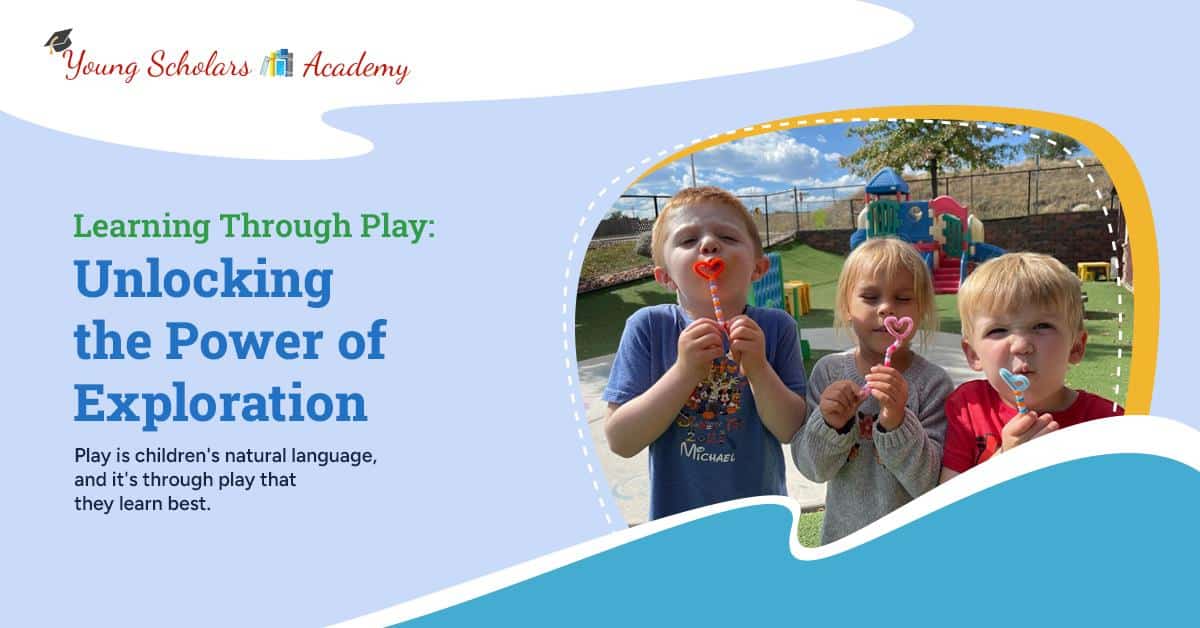
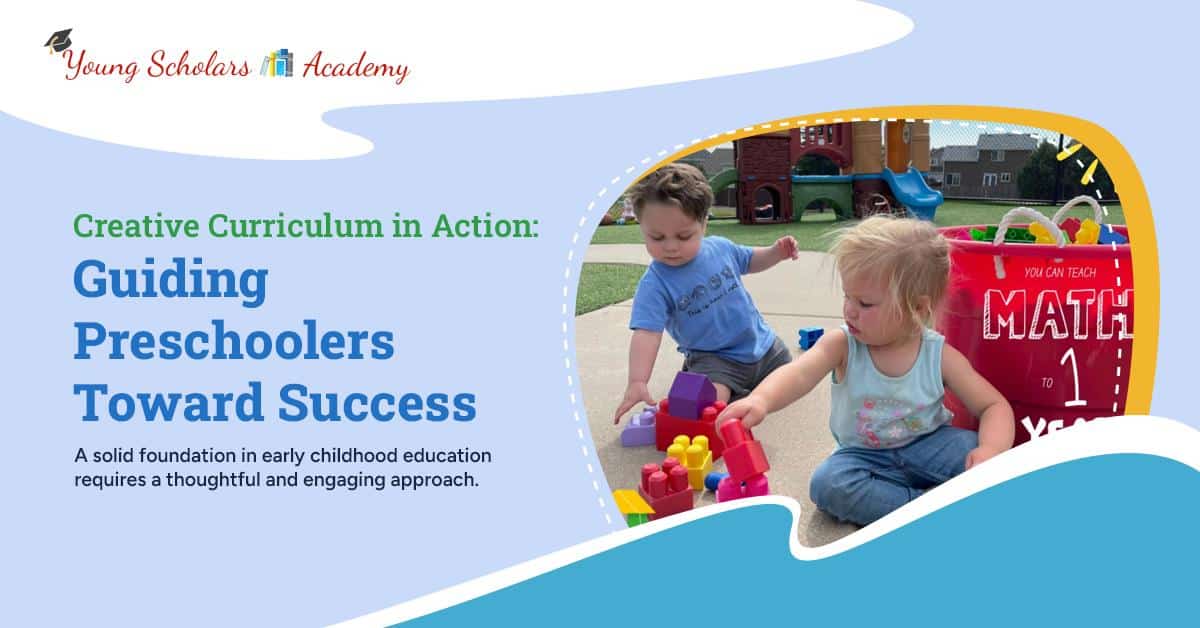
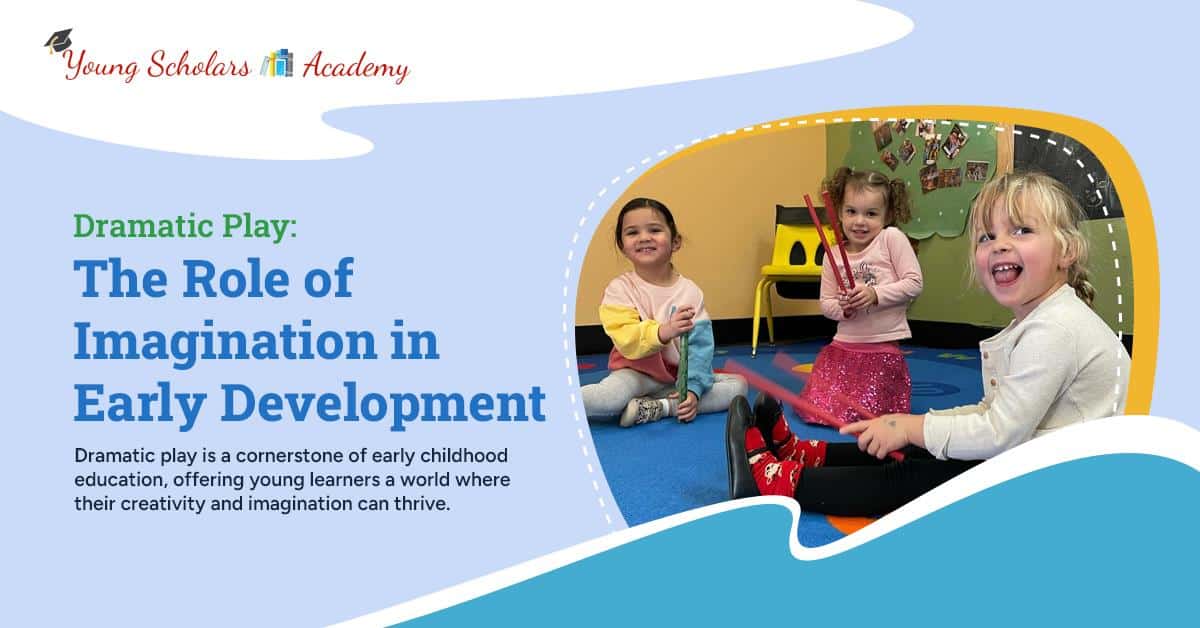



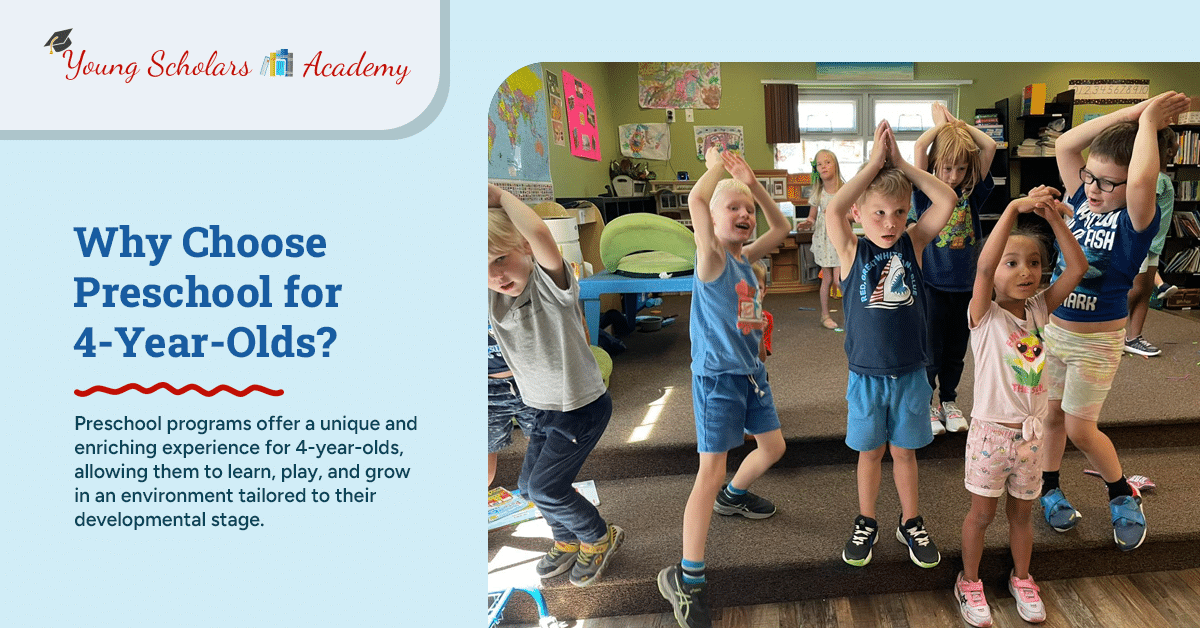
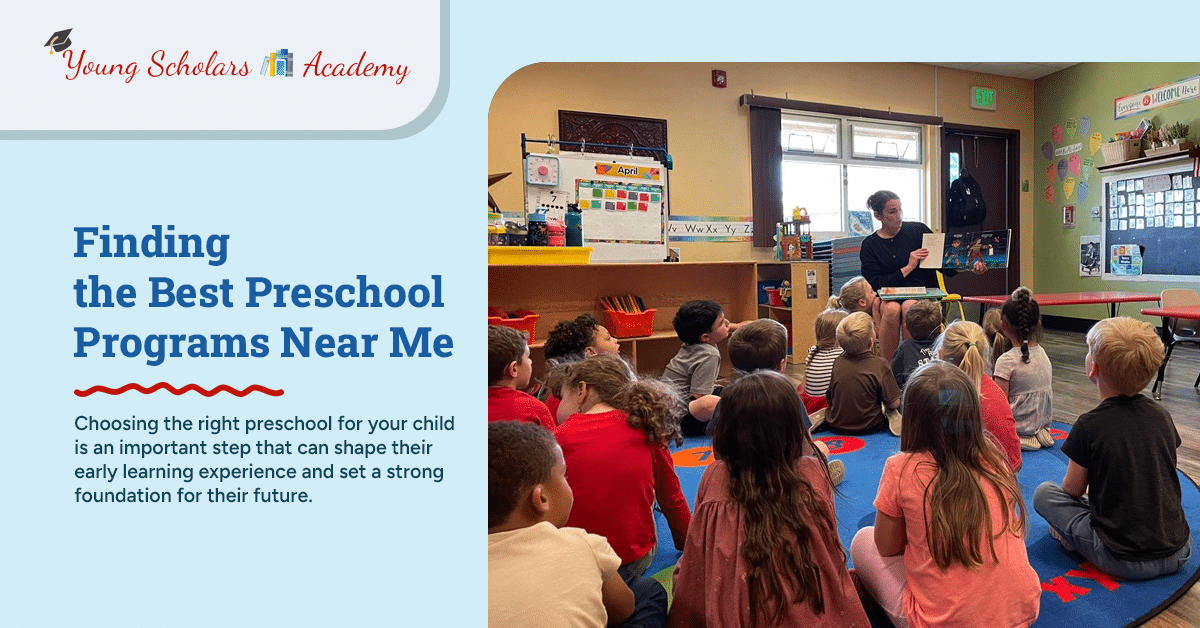
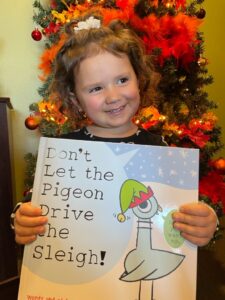 comprehension skills when entering the school system. While children will get many toys and other presents for Christmas, never dismiss the power a book holds!
comprehension skills when entering the school system. While children will get many toys and other presents for Christmas, never dismiss the power a book holds!